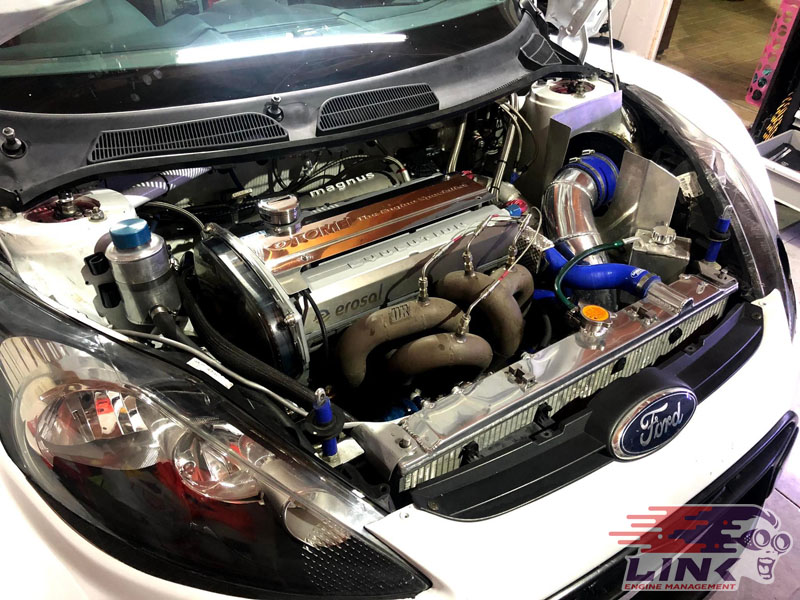How a Ford Fiesta Engine Tune-Up Can Improve Your Car’s Performance
How a Ford Fiesta Engine Tune-Up Can Improve Your Car’s Performance
Blog Article
Opening the Power of Engines: A Comprehensive Overview to Efficiency and Performance
Understanding the complex mechanics of engines is vital for both performance lovers and everyday chauffeurs. The answers may redefine our technique to engine efficiency and efficiency in ways that are both informing and crucial.
Comprehending Engine Essentials
What comprises the essential auto mechanics of an engine? At its core, an engine is an equipment made to transform gas into mechanical energy with a collection of controlled explosions or burning procedures.
The crankshaft then changes this linear movement right into rotational energy, which inevitably powers the car. The camshaft manages the opening and closing of the valves, controling the consumption of air and fuel and the expulsion of exhaust gases. Furthermore, the engine relies upon a thoroughly calibrated fuel-air blend, ignition system, and cooling down system to make sure optimum performance and performance.
Comprehending engine essentials additionally includes identifying the significance of engine cycles, such as the four-stroke cycle, which consists of intake, exhaust, compression, and power strokes. Each stage is critical in making certain the engine operates smoothly and properly. Mastery of these essential auto mechanics lays the foundation for discovering extra complex engine characteristics and efficiency metrics, essential for optimizing both power output and efficiency.
Key Performance Metrics
Trick efficiency metrics are necessary for assessing an engine's efficiency and power output, providing beneficial understandings for both consumers and suppliers. These metrics offer as criteria for engine performance, enabling educated decisions in production, purchasing, and layout.
One of the key metrics is horsepower, which quantifies the engine's capacity to do work over time. Torque, gauged in pound-feet, is another important metric that indicates the engine's rotational force, directly influencing acceleration and pulling capability. Fuel effectiveness, typically determined in miles per gallon (MPG) or liters per 100 kilometers (L/100km), analyzes how successfully the engine transforms fuel right into movement, influencing functional costs and environmental considerations.
In addition, thermal effectiveness procedures how well an engine transforms gas energy into beneficial work, exposing insights into energy losses largely with heat. Emission levels, including CO2 and NOx, are also critical, reflecting the engine's ecological effect and conformity with regulative requirements.

Tuning Techniques for Effectiveness
Tuning methods play a considerable function in boosting engine performance by enhancing efficiency metrics recognized in earlier discussions (ford fiesta engine). Numerous techniques exist to tweak an engine, each adding to improved gas economy and lowered exhausts
One reliable technique is adjusting the air-fuel ratio, guaranteeing the engine operates within the optimum combustion regimen. A leaner combination can improve fuel effectiveness, yet it has to be stabilized to stop go to website misfires or engine knock. Additionally, reprogramming the engine monitoring system can alter specifications such as ignition timing, which even more improves efficiency while keeping power output.
An additional important approach entails changing the intake and exhaust systems. Updating to high-performance air filters and exhaust headers can minimize back pressure, helping with better air movement. This permits the engine to take a breath more easily, resulting in improved burning performance.
Moreover, the application of advanced adjusting tools, like dyno screening, supplies exact data that makes it possible for targeted modifications. On a regular basis keeping track of these efficiency metrics guarantees that tuning efforts generate the preferred performance outcomes. Jointly, these strategies not just reinforce engine performance but likewise add to long-lasting sustainability in engine operations.
Upkeep for Optimal Efficiency
Regular engine upkeep is important for accomplishing ideal efficiency and longevity. A well-maintained engine not just operates effectively yet also decreases the danger of costly fixings and malfunctions. Trick components calling for regular focus include oil, filters, belts, and stimulate plugs.
Changing the engine oil at advised intervals is vital, as oil lubricates relocating components and stops overheating. Similarly, replacing oil and air filters guarantees that contaminants do not hinder engine feature. Neglecting these parts can lead to lowered performance and potential engine damages.
Additionally, evaluating and replacing worn belts and hoses is essential to stop abrupt failings. Timing belts, specifically, ought to be changed according to the manufacturer's routine to stay clear of catastrophic engine damages.
Spark plugs need to also be inspected and changed as required, because they play a vital function in ignition and fuel efficiency.
Future Patterns in Engine Innovation
Embracing innovations visit this website in modern technology, the future of engine design is positioned to revolutionize efficiency and efficiency across numerous applications. Hybrid and completely electric powertrains are ending up being increasingly conventional, using reduced emissions and boosted fuel efficiency.
Furthermore, advancements in materials science are bring about lighter, stronger elements that enhance engine performance while decreasing power consumption. Advanced manufacturing methods, such as 3D printing, enable the development of complex geometries that enhance airflow and thermal management, therefore enhancing combustion processes.
Furthermore, the assimilation of synthetic intelligence and artificial intelligence is readied to change engine diagnostics and performance tuning. These innovations can examine vast amounts of data in genuine time, allowing anticipating maintenance and tailored performance improvements.
Conclusion
In final thought, unlocking the power of engines needs a detailed understanding of their mechanics and click site performance metrics. Applying effective tuning techniques and sticking to normal upkeep practices considerably boost engine capacities.
In addition, the engine depends on a thoroughly adjusted fuel-air combination, ignition system, and cooling system to guarantee optimal efficiency and efficiency.
Comprehending engine fundamentals also entails recognizing the importance of engine cycles, such as the four-stroke cycle, which includes intake, exhaust, compression, and power strokes. Proficiency of these essential technicians lays the groundwork for discovering a lot more complex engine dynamics and performance metrics, essential for optimizing both power output and performance.

Accepting advancements in modern technology, the future of engine style is poised to transform efficiency and efficiency throughout numerous applications.
Report this page